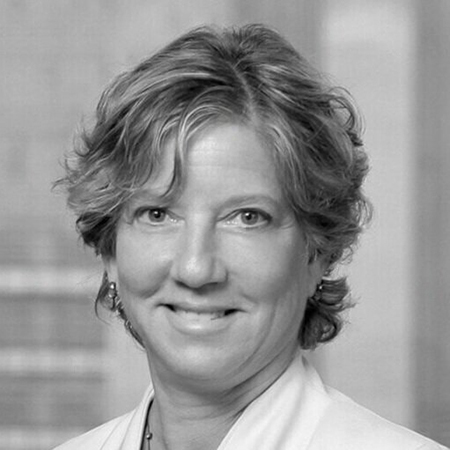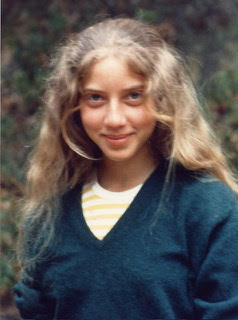Campus News
Philanthropy in action: Alumna Roberta Gordon invests in students for Earth’s future
Roberta Gordon bridges science, law, and philanthropy for environmental progress



From her perch in a hidden treehouse on the UC Santa Cruz campus, Roberta Gordon (Rachel Carson ’81, chemistry/environmental studies) once gazed down over the Farm, watching the research and teaching activities at the campus’s organic agricultural hub. Over thirty years later, that same vision propels Gordon’s work as an environmental lawyer and philanthropist championing sustainable practices and fighting for the planet’s well-being. Gordon’s journey from a tree-climbing student to a prominent environmental advocate is as inspiring as it is impactful.
Science played a significant role in Gordon’s upbringing on Long Island and the city of New York. Her mother, Ida Gordon, was one of the first women to graduate from MIT; her godparents were physicists; and her neighbors were scientists who helped establish the Environmental Defense Fund. Oil spills in the Long Island Sound during her childhood transformed her beloved beaches, an experience she says amplified her understanding of the connection between science and the environment. This connection drew Gordon to UC Santa Cruz, where the university’s union between science and nature helped crystalize her focus on environmental protection—merging her scientific interests with her passion for preserving the Earth.
Gordon had a successful legal career focused on environmental law and worked in federal and state government in enforcement, regulatory, and policy-making capacities as well as in private practice. She was instrumental in developing environmental policies and rules as an Attorney Advisor at the United States Environmental Protection Agency’s Office of General Counsel, where she was awarded a Gold Medal for Exceptional Service and Bronze Medal for Commendable Service. Now retired, Gordon lends her expertise to the myriad boards she is on, including the Division of Social Sciences Dean’s Council at UC Santa Cruz.
Her philanthropy follows this same focus and passion. Gordon established a family foundation in honor of her parents, the Ida and Robert Gordon Family Foundation, to continue their commitment to philanthropy for generations to come. The foundation is dedicated to addressing the intersection of climate and sustainable food systems and other environmental challenges, women’s health programs, arts and identity projects, social justice programs, and other current areas of need.
“Everything we support is invested with an eye toward making an impact on environmental, social, and governance issues,” Gordon says.
That impact is magnified at UC Santa Cruz, where Gordon feels her support is a natural fit.
“I knew the moment I stepped onto the campus that I wanted to give back to it,” she says.
Gordon’s first major grant to UC Santa Cruz was a five-year, no-till/low-till organic farming research project. Thanks to her investment, the project is flourishing.
“We like to think that we are leading the way, that through our investments we can encourage others,” Gordon says. “We want to make a difference and fund scientific research that might not otherwise be funded. We’re on a mission to ensure we remain cutting edge with our philanthropy.”
Gordon notes that the initial grant to the Farm is particularly meaningful to her because it set in motion the foundation’s goal of working with climate and sustainable agriculture.
“The level of commitment, the results that we’ve gotten, and the quality of the work has resulted in it being one of the most meaningful grants we’ve done,” she says.
Gordon has also supported student research at the intersection of climate and agroecology. This past year, the foundation’s grant supported the hiring of four UCSC students to support the Center for Agroecology’s work advancing research and fostering a sense of belonging within its agricultural work.
“The Gordon Foundation’s support in hiring these students has been instrumental in our efforts,” says Darryl Wong, Executive Director for the Center for Agroecology. “We prioritized students who not only excelled in technical work and were able to enhance their expertise in agroecology research but also shared our commitment to inclusive program development and the establishment of a robust informal infrastructure dedicated to their support.”
“The Gordons’ unwavering support is inspiring the next generation of agricultural scientists and changemakers by promoting engagement across our facilities and programs,” Wong says. “It’s exciting to work with funders who are so passionate, involved, and knowledgeable about the work. As a lawyer, Roberta brings a critical and deep understanding of the projects that positions her as much a thought partner as a donor.”
In honor of her father’s ardent support for women’s rights and Planned Parenthood, particularly at a time when men weren’t necessarily focused on these issues, Gordon established the Women’s Financial Security, Food, and Health Community Internships at UC Santa Cruz in 2023 in the Center for Economic Justice and Action, formerly known as the Blum Center on Poverty, Social Enterprise, and Participatory Governance. Thanks to Gordon’s support, three UCSC interns gained a sense of possibility regarding their professional trajectories. Their participation in paid internships focusing on women’s financial security, food, and health amplified their understanding that they can contribute to and excel in a range of fields and careers.
“Roberta thinks and invests strategically in a way that helps us to highlight the work of our great faculty and wonderful students,” says Katharyne Mitchell, Dean of the Social Sciences. “Others acknowledge how her thoughtful philanthropy has produced such great results—in programming, research, and exciting opportunities for young people, and they want to partner with us and get involved. As a member of the Dean’s Council, she has been invaluable in sharing her insights and expertise.”
Gordon notes that her support for UC Santa Cruz is heightened by its status as a public institution.
“I feel that it is important to think about the next generation and for donors to consider that they are helping the next generation come along,” Gordon says. “We’ve got to think about what we’re doing to move them along and support their trajectories.”